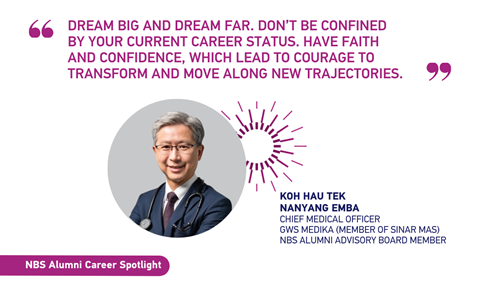Sustainability agenda 'no longer a box-checking exercise'
GIC chief executive Lim Chow Kiat says the trade-offs have become more manageable as various stakeholders, too, recognise that it is not sustainable to focus purely on commercial profits
Rising geopolitical tensions and inflationary pressures present trade-offs for sustainability, but a commitment to responsible investments is all the more important in such times, top financial executives said on Tuesday (Mar 15).
Every organisation today should have in place a sustainability agenda and there is a business case for seeing that beyond a box-checking exercise, they said at an inaugural conference by Nanyang Business School, which centred on corporate sustainability.
"There is so much temptation to pull back and say let's slow down investments in sustainability. And let's just protect ourselves and make our money," said Victor Lee, CIMB Singapore's chief executive officer at a panel at the conference.
"The future shareholders, investors, private equities are looking at us. Every company needs a sustainability agenda. Otherwise, you can actually see that being reflected in the share price - and it will crash, if not today, for certain in the next 5 to 10 years," Lee said.
The trade-offs have become more manageable as various stakeholders, too, recognise that it is not sustainable to focus purely on commercial profits, said GIC chief executive Lim Chow Kiat, a fellow panelist.
Many companies and investors are increasingly buying into the importance of sustainability, Lim said. "We have not found great need to convince companies to do that. And investors have seen, especially in the last few years, that it is possible to do good and do well as the same time," he said.
In his keynote speech for the conference, Lim talked about how societies can better tap the pool of private capital available for sustainable public infrastructure, such as through investor-friendly regulations.
"There are trillions of capital available for investment into public infrastructure. But the problem lies with things like the project pipelines - how many of them are bankable?
"The problem lies with regulations - does it come with too many political risks? The problem lies with scale," he said.
He also highlighted transition finance, which looks at helping high-carbon companies to green their processes and assets, as another promising market for investors.
Ultimately, companies in this age must consider their purposes and goals beyond profits, Lim said.
In a separate panel on how companies should address sustainability challenges, speakers also highlighted the importance of investing in social sustainability, with one panelist likening this to the "poor cousin" of environmental aspect of sustainability.
UOB chief sustainability officer Eric Lim noted the challenges in defining "social good". Still, he noted the importance of investing for social outcomes, such as supporting communities at the "base of the pyramid", which refers to those in the poorest socio-economic groups.
Constant Van-Aerschot, Asia Pacific director of World Business Council for Sustainable Development (WBCSD), said that there are existing methodologies for looking at social sustainability.
WBCSD's social capital protocol, for instance, looks into social impact of development projects, such as how they may affect literacy rate, life expectancy and other social constructs.
Source: The Business Times





.tmb-listing.png?Culture=en&sfvrsn=64dc3641_1)

